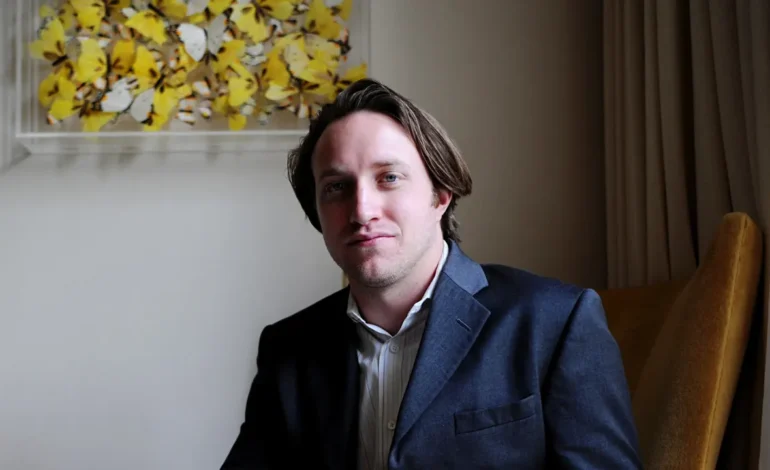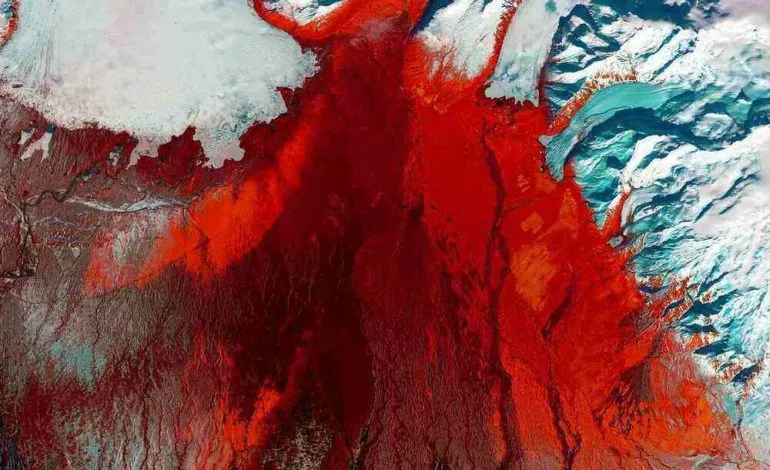The Amazing Story of Chad Hurley From YouTube to Big Success

Ever wonder how a guy who sketched logos turned into one of the wealthiest tech entrepreneurs of our time?
Chad Hurley didn’t just help start YouTube—he helped unleash a whole new way we consume media. And yeah, that move paid off big time.
But this story isn’t just about one lucky break. It’s about strategy, timing, and a knack for knowing when to double down.
The guy basically went from designing PayPal’s logo to owning millions in Google shares, to becoming a partial owner of elite sports teams.
And his net worth—estimated somewhere north of $700 million—is one heck of a scoreboard.
Here’s why that number matters. It’s not just a trophy figure; it reflects how Hurley played his cards in a high-stakes tech world. And if you’re trying to understand what it takes to actually win in this space, you look at people like him.
Let’s break down how Chad Hurley built, grew, and stretched his fortune far beyond a single viral video platform.
Introduction To Chad Hurley’s Financial Success
Chad Hurley isn’t just a Silicon Valley name-drop.
He’s the kind of guy who changed the way we experience the internet—literally.
Before short video content became a format shoved down your algorithm on every platform, Hurley, along with Steve Chen and Jawed Karim, created YouTube. And no, it didn’t happen in some high-rise boardroom. It started with an unmet need: why wasn’t there an easy way to share videos online?
Hurley knew something early on that most people didn’t: that video would become the new language of the web. And the rest, well, became the internet’s story.
But what’s the real weight behind his influence?
It’s not just the tech. It’s the dollars. His net worth, reported between $700 and $800 million, isn’t accidental—it’s a byproduct of bold bets and platform-building.
That valuation matters. It tells you how right he was—not just culturally, but economically.
And yes, YouTube was the ignition point. When Google came knocking in 2006 with a $1.65 billion offer, Hurley’s place in tech history—and serious financial stability—was cemented.
This is where strategy meets timing. The world got YouTube.
He got millions in Google stock.
Chad Hurley’s Career Milestones
Rewind to the late ‘90s. Before making tech headlines, Chad Hurley was just a design geek from Indiana University of Pennsylvania who studied Fine Arts.
Not exactly the resume you’d think leads to tech millions.
Right out of college, he landed at PayPal. No big title. No equity headlines. But one thing stood out—he designed their original logo. Funny how a simple design project can be your backdoor into the dot-com elite.
It was at PayPal where he met Steve Chen and Jawed Karim—a trio that would later reshape online media.
In 2005, YouTube was born. A scrappy idea at first. A place to upload, share, and discover videos without uploading sketchy files via FTP. The platform exploded thanks to its simplicity and timing. Right place. Right era.
And Hurley wasn’t just along for the ride.
He owned the wheel.
As CEO, he had the role of shaping YouTube’s global expansion, building its culture, and figuring out how to scale infrastructure for a product growing faster than almost anything else on the web.
That decision paid off fast. Just a year later, Google stepped in with a game-changing move: it bought YouTube for $1.65 billion in stock.
Hurley’s individual haul? 694,087 Google shares directly, and another 41,232 in trust.
When you do that math—and factor in stock appreciation since—you’re talking hundreds of millions.
He stepped down as CEO in 2010. But he wasn’t done. Not by a long shot.
He started pushing toward other ventures, still focused on video. Always evolving, never coasting.
YouTube And Chad Hurley’s Net Worth
So how did YouTube actually translate into massive wealth for Hurley?
Let’s punch in some simple numbers: Google paid $1.65 billion for YouTube, and Hurley’s portion came in the form of shares. Based on valuations at the time, those shares were worth around $345 million.
But Google didn’t stay at $470 per share. Try multiplying it by modern-day prices. If Hurley held onto a chunk of those shares, he was looking at well over triple that original worth.
In short, YouTube wasn’t just a passion project—it was a financial springboard.
Want to see what that turning point did for him? Here’s a peek:
| Deal Point | Value at Time of Acquisition | Estimated Value Now |
|---|---|---|
| Google Shares (Direct & Trust) | Approx. $345 Million | $700M+ (Assuming asset growth and investments) |
What’s key here isn’t just the size of the payday.
It’s how Hurley positioned himself as a pioneer.
He didn’t build a one-off product. He built an ecosystem that reshaped internet behavior. And that’s where legacy and money intersect.
Of course, Hurley could’ve sold his shares fast and cash out. But long-term thinking matters. Assets like Google stock are vehicles, not trophies. Hurley used them as stepping stones—into more startups, sports ownership, and beyond.
Tech Entrepreneur Wealth Analysis
When you look at Hurley’s story, one thing becomes obvious: timing gets you in the game, but strategy keeps you rich.
Tech entrepreneurs like him don’t just ride luck. They build around big ideas and move early.
Here’s why guys like Chad Hurley end up stacking wealth:
- They get in before the wave hits.
- They don’t just sell, they build platforms.
- They stay involved in adjacent sectors (AI, mobile, creator tools).
Hurley spotted the power of video and community before it became social norm. Even after YouTube, he tried to reimagine video collaboration with MixBit. He wasn’t just hunting the next unicorn—he was iterating on what he learned.
And tech entrepreneurs thrive because that’s exactly what they do:
They experiment.
They invest early.
They bet often.
The market loves bold. It doubles down on people who back what they know.
Hurley also knew when to diversify. He moved into startups like Dropbox and Uber and planted flags in sports ownership to hedge against tech cycles.
Because the best in tech know this: innovation makes you valuable. But diversification keeps you there.
It’s not just about the jackpot.
It’s what happens after the jackpot that makes a fortune sustainable.
Chad Hurley’s Business Ventures Beyond YouTube
When you think of Chad Hurley, YouTube instantly comes to mind. But what happened after he passed the torch as CEO in 2010? He didn’t disappear. Far from it. Hurley kept pushing the envelope with a mix of bold experiments and fresh tech-driven ideas.
In 2013, he launched MixBit—an ambitious take on collaborative video editing. The concept was smart: let users shoot, edit, and remix videos together, giving creative power back to the people. MixBit never quite caught fire like YouTube, partly because the market was already heating up with competitors like Vine and Instagram shifting into video. Despite its limited commercial impact, it paved Hurley’s path forward: doubling down on creativity and user-generated content tools.
Fast forward to 2023. Enter EyeTell, a startup designed for the AI age. This time, Hurley focused on content creation at the script level. EyeTell uses AI models to generate full scripts from simple text prompts. It’s designed to help creators streamline video production—from brainstorming to publishing.
The project quickly gained traction with investors. Seed funding rolled in from A-Star Capital and SV Angel, signaling that the tech world still bets on Hurley’s instincts. He’s clearly not just revisiting the past—he’s reshaping the future of video creation.
MixBit might’ve been ahead of its time. EyeTell, on the other hand, is aiming to ride the AI wave that’s dominating today’s digital toolkit. What ties them both together? Hurley’s never-ending chase to make video creation more accessible, scalable, and creative.
Chad Hurley’s Innovation Contributions
Most people know Hurley as the YouTube guy. But his imprint on digital media goes well beyond that early success. He’s one of the architects behind the rise of the creator economy.
When YouTube launched in 2005, it didn’t just give people a place to upload videos. It launched a whole new way of consuming content. Hurley helped build the machine that would turn casual vloggers into full-blown YouTubers—and some into millionaires.
That innovation was more than tech. It altered behavior. People went from watching prime-time TV to spending hours watching DIY videos, music covers, and personal blogs. Suddenly, creators became brands. Viewers became subscribers. And a platform became a springboard for careers.
Hurley knew content was king—but distribution and discovery? That’s what made YouTube unstoppable. Features he championed—like easy sharing, embeddable players, and fast upload speeds—helped online video go mainstream faster than anyone expected.
That online video explosion eventually gave rise to TikTok, Twitch, and Instagram Reels. All of them stand on ground that Hurley helped shape. He didn’t just build a platform. He built a cultural shift.
Chad Hurley’s Investment Portfolio
These days, Hurley isn’t just behind the curtain of one startup. He’s got fingerprints all over Silicon Valley’s investment scene. His net worth continues to climb, thanks in no small part to smart, forward-looking investments.
He’s backed heavy hitters like Dropbox, Uber, and Zenefits. These moves weren’t random. Hurley’s game plan has always involved betting on platforms that empower users—whether it’s making file sharing easier or flipping the ride-hailing game upside down.
But he hasn’t stopped at tech. Hurley also turned to sports, where brand value and fan loyalty compound just like interest. He holds minority stakes in:
- Golden State Warriors (NBA) – Riding high on championships and global fan attention.
- LAFC (MLS) – A dynamic new player in the ultra-loyal US soccer market.
- Leeds United (EPL) – A historic club making waves with global investors.
His sports play isn’t just about passion. It diversifies his portfolio and taps into revenue streams from broadcasting rights, merch, global tours—and yeah, a bit of prestige doesn’t hurt.
Hurley also lends his brainpower to companies in tech’s future stack. He’s been an advisor for both Reddit and Dropbox, offering both capital and strategic insights. His guidance blends creator-side empathy with sharp business sense.
What stands out in his investment strategy is balance. It’s not all moonshots or megabucks. There’s low-risk stability with upward scalability. He doesn’t just chase the next unicorn—he backs things he understands and genuinely connects with. That’s not luck. That’s calculated, long-view thinking paying off in spades.
Chad Hurley’s Financial Growth and Market Influence
So how did Hurley turn a YouTube deal into wealth that lasts? It’s not just about the buyout—it’s how he played every card after.
When Google bought YouTube in 2006, Hurley walked away with nearly 700,000 Google shares. Back then, it was worth about $345 million. But that number ballooned with Google’s stock growth, sparking one of the most successful exits in tech history.
But instead of retiring to some remote island, Hurley stayed dialed into the tech scene. Between startup building, smart investing, and advisory roles, he created an ecosystem of consistent financial momentum. That’s rare in a space filled with one-hit wonders.
Today, his estimated net worth sits between $700 million and $800 million. Not bad for someone who started as a Fine Arts graduate designing PayPal logos.
Hurley’s influence continues in ways that aren’t flashy but matter. Founders listen when he talks. Investors pay attention to where he places his chips. And startups regularly come knocking for both funding and perspective.
What keeps him relevant isn’t just the bank balance—it’s adaptability. He doesn’t chase trends. He tracks cultural movements, technological shifts, and user behavior. Then he acts—not reactively, but strategically.
Call it natural instinct. Or the result of spending decades building, breaking, and rebuilding in one of tech’s fastest-moving arenas. Either way, few have leveraged a lightning-strike success the way Hurley has.
How Chad Hurley Built His Fortune
Ever wonder how someone goes from designing logos to pocketing millions in tech? Chad Hurley’s story isn’t about getting lucky – it’s about making the right plays at the right time.
The first big move: co-founding YouTube. Back in 2005, video uploading online was clunky. Hurley saw the friction, teamed up with fellow ex-PayPal guys Steve Chen and Jawed Karim, and built a platform that changed the internet. It only took a year for Google to see the value — they snagged YouTube for $1.65 billion in stock. Hurley walked away with over 700,000 Google shares, which were worth around $345 million at the time. And if he held onto them? Let’s just say compound growth did its thing.
But he didn’t stop there. Hurley leaned into that success, launching MixBit in 2013 and EyeTell in 2023 — both focused on pushing video creation forward. MixBit didn’t blow up, but that’s the game. EyeTell? It plays on the AI wave, using AI prompts to generate video scripts. Capital’s backing it, and Hurley’s digging in deep.
Then there’s the quiet flex: real estate. He bought a 10-acre spread in Woodside for serious money, flipped it in 2019 for $14.25 million, and parked a multimillion-dollar mansion in Atherton — which sits around the $15–$20 million mark.
- Tech stock rocket ride (the YouTube exit)
- Savvy post-YouTube startups
- Equity in sports franchises like the Warriors and Leeds United
- Massive California property plays
Put it all together, and Chad Hurley’s net worth didn’t just appear overnight. He saw momentum, seized it, and turned one win into many.
Chad Hurley’s Tech Legacy
Alright, let’s talk legacy. Because when you create a platform that changes how over a billion people spend their day? You leave a mark — and Hurley carved his name deep.
YouTube wasn’t supposed to be a cultural force. It started as a side project. But Hurley understood scale and user experience before most in tech did. By tweaking the way people shared and consumed video, he didn’t just co-found a site — he helped build a new layer of the internet’s DNA. From makeup tutorials to presidential addresses, YouTube became the global town square.
That’s his digital footprint. But Hurley didn’t just drop the mic after YouTube.
MixBit was his attempt to recapture lightning in a bottle — it didn’t land, but it kept him building. Then came EyeTell — a startup slicing right into the AI/creator economy crossover. In a world where everyone’s a content creator, this thing has legs. It’s not about reinventing the wheel — it’s about optimizing it. EyeTell lets storytellers skip the grind and get straight to creating.
He’s also dipped into companies like Dropbox, Uber, and Reddit, riding trends before they break headlines. Call it foresight or just killer instincts, but the man knows where to move his chips.
And that influence isn’t slowing. The tech world keeps shifting, but Chad Hurley’s still showing up — with capital, experience, and a vision tuned into what’s next, not just what worked yesterday.
Chad Hurley Biography and Net Worth
Chad Hurley grew up in Reading, Pennsylvania — not exactly Silicon Valley. He was born in January 1977, and by ‘99, he walked out of Indiana University of Pennsylvania with a fine arts degree. Not business. Not coding. Fine arts.
His break? PayPal. That’s where he met Chen and Karim. While there, he designed their original logo — low-key design flex — but more importantly, he found his co-founders and his launchpad. A few years later, YouTube was born, and the world didn’t just watch — it logged on and stayed.
After stepping down as YouTube CEO in 2010, Hurley didn’t coast. He backed startups, built some of his own, and got into sports — holding ownership in the Golden State Warriors, LAFC, and Leeds United. His money wasn’t just sitting — it was working in every pocket of culture.
And yeah, the numbers stack up. As of 2025, Chad Hurley’s net worth sits somewhere between $700 million and $800 million. Here’s how that pie splits:
- Initial Google stock payout from YouTube sale: ~$345M (and still growing)
- Tech investments: Uber, Dropbox, Zenefits, Reddit, and more
- Active involvement in startups like EyeTell
- Real estate flips and holdings around Silicon Valley
- Equity in major sports franchises
From Reading to the Forbes list? Not your average path. But Hurley made it make sense, betting on ideas, not just trends.
Key Takeaways from Chad Hurley’s Entrepreneurship Journey
So what’s the playbook here? How do you go from a creative guy in Pennsylvania to one of tech’s quiet millionaires? Stick around — here are the lessons Hurley’s story lays out.
First, persistence and timing matter. YouTube didn’t work because it was “just a good idea.” It worked because he moved fast when opportunity knocked. He didn’t wait for permission.
Second, don’t fear reinvention. Sure, MixBit wasn’t a hit — but neither was Apple’s first iPhone. Innovation means trying, recalibrating, and trying again.
Third, stay close to where the world is going. When AI became the conversation, Hurley dropped EyeTell. AI + content = massive new market. He saw it. He moved.
For entrepreneurs watching the game unfold, Hurley’s showing that success isn’t a one-and-done. It’s about staying adaptive, pulling wisdom from wins (and losses), and building for the future — not yesterday.
What should future founders leave with?
- Build something useful, not just flashy
- Know when to exit — and what to do next
- Diversify — tech, sports, real estate, you name it
Real wealth? It’s not just about the payday. It’s what you do after. And on that front, Chad Hurley’s still just getting warmed up.





